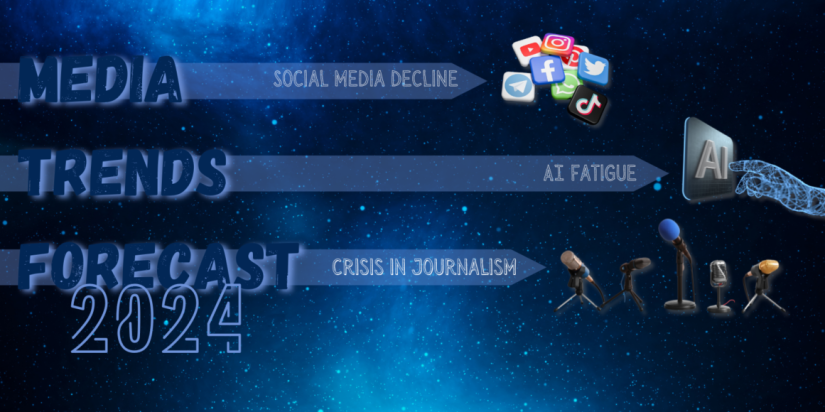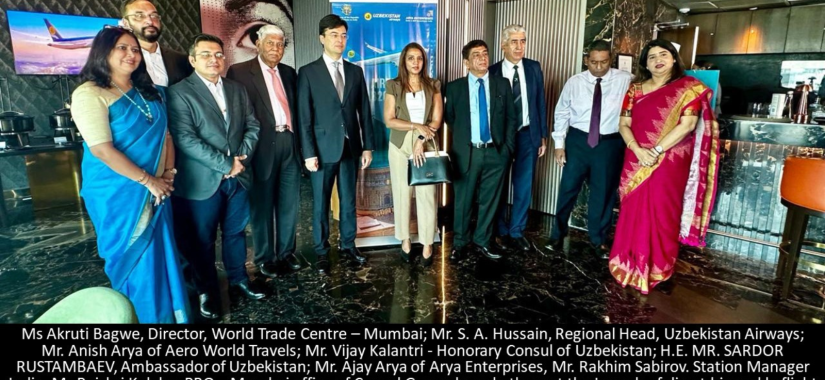Media Evolution 2024: Social Media Decline, AI Fatigue, and Journalism’s Crisis – TravelDailyNews Asia
The year 2024 marks a pivotal shift in the media world, with social media’s decline, a growing weariness of AI, and the ongoing crisis in traditional journalism.
Making predictions is risky — one can easily be proven wrong in hindsight. However, it is worth attempting to guess what the next year will bring for the media world. I believe we will witness a transformative year, marked by shifts in social media, artificial intelligence, and traditional journalism. These changes are not abrupt but rather the culmination of trends and changing sentiments that have been reshaping our digital interactions and media consumption over the past few years, significantly altering how we interact with the internet and with each other.

Social media decline
During the 2010s, platform-based social media was the cornerstone of digital interaction, but by 2023, one could see a noticeable change. Major social media platforms began to face increasing scrutiny and criticism over various issues, including privacy concerns, content prioritisation by algorithms, and an emphasis on monetisation over user experience. This growing discontent sparked critical discussions and analyses, suggesting a general feeling of disillusionment with the mainstream social media experience.
At the same time, alternative platforms, like Substack, began to emerge and gain traction. These new digital spaces focused on niche interests, community building, and authenticity, offering a stark contrast to the often superficial and commercialised mainstream social media experience. They catered to specific groups and interests, fostering deeper connections and more relevant content.
The potential end of the traditional social media era signifies a broader cultural and technological shift. This period may be remembered as a pivotal moment, leading to a more diverse, rich, and meaningful digital landscape, where individual voices and niche cultures can flourish alongside each other, creating a more inclusive and dynamic online world. For creators, this evolving ecosystem presents a mix of challenges and opportunities. While the path to widespread popularity might become more complex and less straightforward, there is likely to be a greater appreciation for authenticity and originality within niche communities.

AI fatigue
2023 was definitely the year of AI hype. But in 2024 I expect the landscape of artificial intelligence to encounter a significant shift in public perception. In 2023, AI was at the centre of innovation and public intrigue, seemingly boundless in its potential and applications. However next year we will see a growing sense of AI fatigue. This change is partly attributable to the normalisation of AI, transitioning from a groundbreaking technology to a standard tool embedded in various aspects of our lives.
The mass users were initially excited to use simple online tools to create AI-generated content, such as videos blending popular culture icons. Initially amusing, the novelty quickly wore off as the internet was inundated with similar creations. The ease of creating these AI-generated pieces led to a saturation point, making the whole endeavour seem mundane and uninteresting. This was exemplified by an AI-generated adidas advertisement that failed to captivate, underscoring the idea that mere months after gaining access to these tools, we were already growing bored of their outputs.
As we move to 2024, the diminishing excitement around AI could signal a broader cultural shift. It suggests a move towards appreciating and rediscovering the uniquely human aspects of creativity and innovation. While AI will undoubtedly continue to play a significant role in various fields, its place in the cultural and artistic domains might see a reevaluation, giving way to a renewed focus on human creativity and the shared construction of meaning and value that define our humanity.

Continuing crisis in journalism
The third major trend I would expect to continue in 2024 is the crisis in traditional journalism and media. This ongoing crisis is a complex phenomenon which is a product of technological advancements, changing consumer behaviour, and a series of strategic miscalculations by media entities.
The clickbait approach, which was dominating the industry, was short-lived as audiences quickly grew tired of sensationalist headlines that often led to underwhelming content. The realisation dawned that tricking readers into clicking on low-quality content could only yield transient gains. Yet, pursuit of clicks over quality content led to a decline in credibility and relevance. The pivot to video, another strategy adopted by numerous media outlets, promised engagement but often resulted in annoyance and disengagement from readers.
The underlying problem was a fundamental misalignment of goals: media outlets, driven by the need to generate advertising revenue, focused on maximising clicks rather than providing quality journalism. This approach led to a glut of superficial content, contributing to the overall decline in public trust in media. The crisis in traditional media, therefore, is not just about adapting to digital transformation or finding new revenue models. It’s about realigning with the core values of journalism – truth, depth, and public service. As the industry struggles with these challenges, we rediscover the value of quality journalism and the willingness of readers to pay for content that they trust and value.
As we move into 2024, the media landscape will likely continue to grapple with these issues. Although all three trends seem to be pessimistic at first, I see them as signs of a deeper societal shift towards more authentic, nuanced, and responsible digital interaction. This transformation, driven by changing user preferences and technological advancements, makes us rethink our relationship with the digital world. And I also hope it will compel media entities to realign with core values of truth, community, and creativity.
Karine is the Managing Director of Midas PR and serves the company as its “Master Connector”.
She has over 20 years of experience driving PR strategy for leading organisations in various sectors, launching Midas PR in 2007 after gathering ideas, honing her skills in Luxembourg, and refining her PR approach by working in Thailand. Over the last 16 years, Midas PR has achieved strong and consistent growth and today is recognised as one of Thailand’s leading multi-award-winning PR and communications firms. Alongside heading up the Midas team, Karine is Chair for the PRCA Thailand and a member of PROI Worldwide.
Karine is also a renowned thought leader and in-demand speaker on industry topics such as reputation management, corporate communications, and diversity and inclusion. She has shared her insights at several leadership, business and PR conferences, such as the Women in Business Series and the Thailand Startup Summit.
A passionate advocate for female leadership, Karin aims to serve as a role model for other women and inspire them to pursue their aspirations. She co-founded The Lionesses of Siam, a distinctive social and business networking group exclusively for women in Thailand. She has been honoured with several awards, including the Prime Award for International Business Woman Of The Year 2023.




